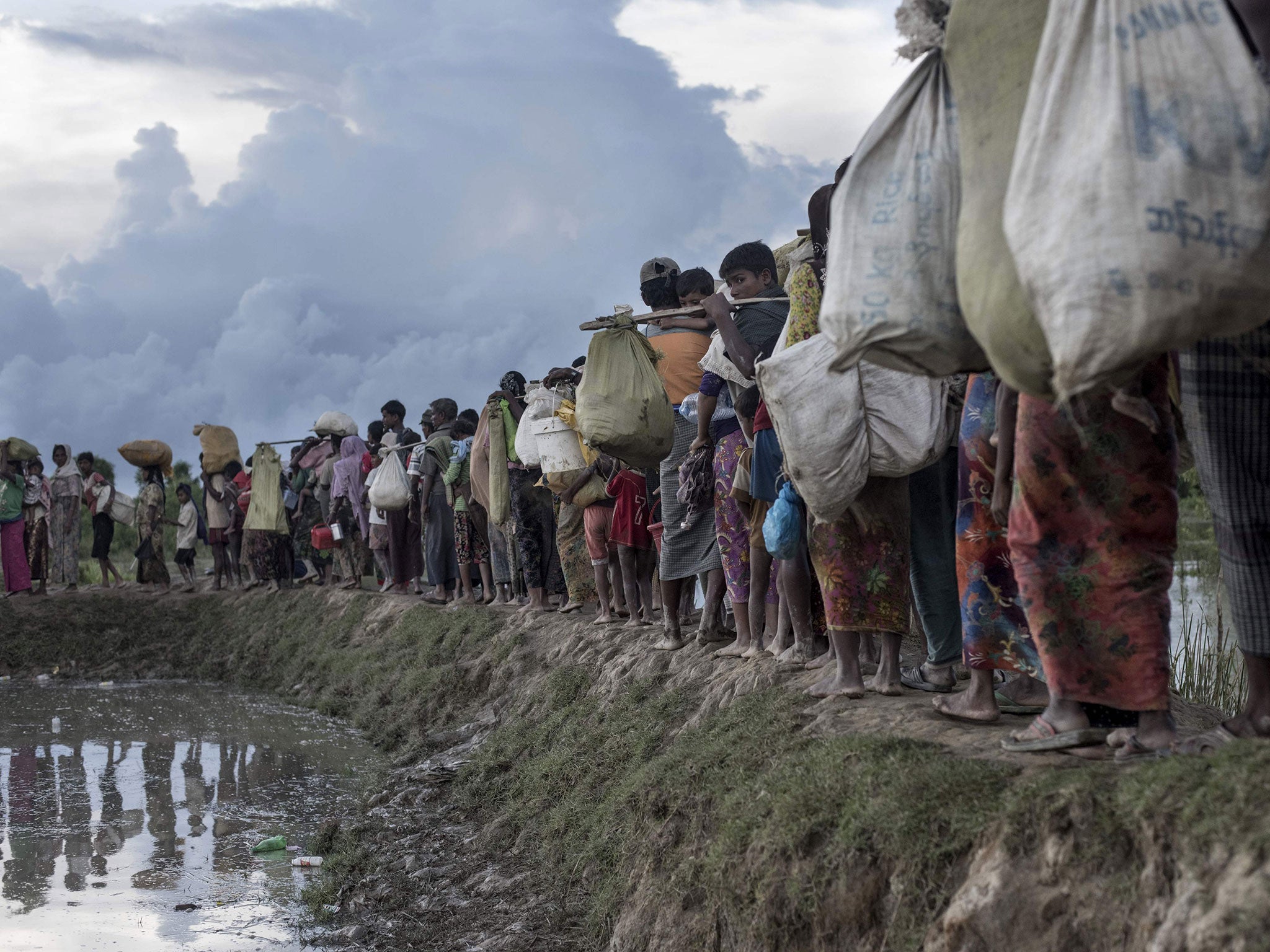Rohingya Muslims cannot be returned to Myanmar as ethnic cleansing is continuing, says UN
Nature of violence has changed from 'frenzied blood-letting and mass rape' to 'lower intensity campaign of terror and forced starvation'

Your support helps us to tell the story
From reproductive rights to climate change to Big Tech, The Independent is on the ground when the story is developing. Whether it's investigating the financials of Elon Musk's pro-Trump PAC or producing our latest documentary, 'The A Word', which shines a light on the American women fighting for reproductive rights, we know how important it is to parse out the facts from the messaging.
At such a critical moment in US history, we need reporters on the ground. Your donation allows us to keep sending journalists to speak to both sides of the story.
The Independent is trusted by Americans across the entire political spectrum. And unlike many other quality news outlets, we choose not to lock Americans out of our reporting and analysis with paywalls. We believe quality journalism should be available to everyone, paid for by those who can afford it.
Your support makes all the difference.Rohingya refugees in Bangladesh cannot be safely returned to Myanmar because widespread and systematic violence against them amounting to ethnic cleansing is continuing, the senior UN official for human rights has said.
Andrew Gilmour said during a four-day visit to Bangladesh refugees told him “credible accounts of continued killings, rape, torture and abductions, as well as forced starvation” in Rakhine state, western Myanmar.
Myanmar’s government denies such abuses and announced in January it was ready to accept the return of refugees.
Mr Gilour, the UN assistant secretary-general for human rights, added: ”It appears that widespread and systematic violence against the Rohingya persists.
“The nature of the violence has changed from the frenzied blood-letting and mass rape of last year to a lower intensity campaign of terror and forced starvation that seems to be designed to drive the remaining Rohingya from their homes and into Bangladesh.”
Despite Myanmar saying it was ready to accept back refugees under an pact signed with Bangladesh in November, he added: “Safe, dignified and sustainable returns are, of course, impossible under current conditions”.
Separately, the UN refugee agency, UNHCR, said it was concerned about people living just inside Myanmar at its border with Bangladesh.
The office is monitoring developments after several thousand people living in a makeshift camp “were reportedly ordered to vacate the area by the Myanmar authorities,” the agency said.
"UNHCR underscores that everyone has the right to seek asylum, just as they also have the right to return home when they deem the time and circumstances right," it said in a statement released late on Monday.
"People who have fled violence in their country must be granted safety and protection and any decision to return must be voluntary and based upon a free and informed choice."
Around 700,000 Rohingya Muslims have fled Buddhist-majority Myanmar to Bangladesh since August, when Myanmar security forces began sweeps though Rakhine state following Rohingya insurgent attacks.
Subscribe to Independent Premium to bookmark this article
Want to bookmark your favourite articles and stories to read or reference later? Start your Independent Premium subscription today.
Join our commenting forum
Join thought-provoking conversations, follow other Independent readers and see their replies
Comments